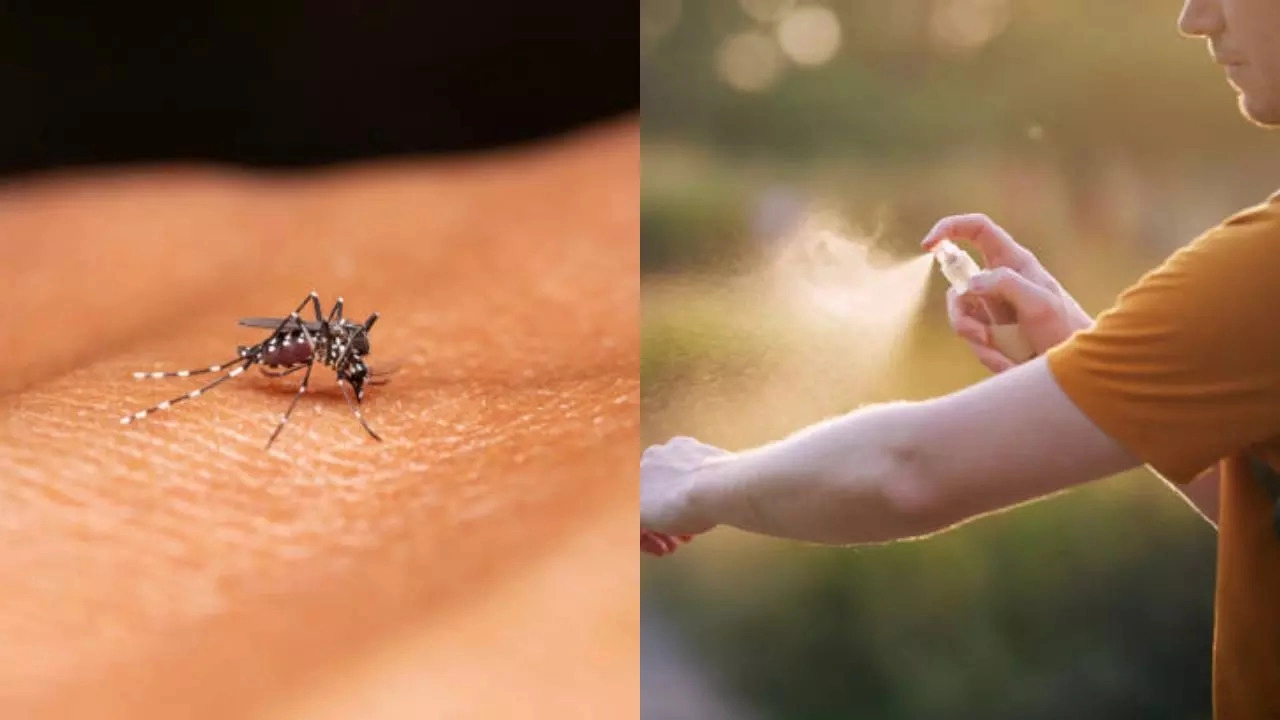
Dengue Outbreak Alert! Cases Spike In Panchkula And Gurugram – Are You At Risk? (Image Credits: iStock)
Dengue has been on the rise since the onset of the monsoon season. Every year the cases used to subside in one or two months but this time cases are on a constant rise till now. People residing in Haryana and Punjab are still seeing a constant surge in dengue cases. Over 1,200 cases of dengue have been recorded in Panchkula district this season. Nearly 50 per cent have been recorded in Panchkula city alone. To date, Panchkula has recorded 1,233 dengue cases. The number is the second highest in the past few years as 2,022 cases were recorded in 2022. The district had recorded 589 cases of dengue in 2023, 906 in 2021, 78 in 2020, 33 in 2019 and 143 cases in 2018. Meanwhile, 175 dengue cases have been confirmed in Gurugram.
Dengue, a viral infection spread by the Aedes aegypti mosquito, typically sees a surge in the monsoon season due to stagnant water and increased mosquito breeding sites. However, cases have continued to persist beyond the rainy months this year, possibly due to extended periods of unseasonal rain and a humid environment that allows mosquitoes to thrive. The increasing number of infections in both cities has raised alarms and health experts are urging people to take precautionary measures to keep themselves safe.
Symptoms of Dengue Fever
Dengue fever often begins with sudden flu-like symptoms, usually within four to ten days after being bitten by an infected mosquito. Symptoms can vary from mild to severe and may include:
- High fever (104 degrees F or higher)
- Severe headache
- Pain behind the eyes
- Muscle, bone, and joint pain
- Nausea and vomiting
- Swollen glands
- Skin rash (typically appears two to five days after the fever starts)
In severe cases, dengue can develop into dengue hemorrhagic fever or dengue shock syndrome, which are life-threatening conditions marked by bleeding, blood plasma leakage, and low platelet count. These symptoms can quickly escalate, making timely medical intervention crucial.
How to Protect Yourself Against Dengue
Prevention remains the most effective approach to controlling the spread of dengue, as there is currently no specific treatment or vaccine widely available for the disease. Here are some essential precautions to keep yourself and your loved ones safe:
- Avoid Mosquito Breeding Grounds: Mosquitoes that carry dengue often breed in stagnant water. Make sure to remove standing water from flower pots, coolers, buckets, and any other containers around your home. Even small amounts of water can be enough for mosquitoes to lay their eggs.
- Use Mosquito Repellent: Apply mosquito repellent to exposed skin, especially during early morning and evening hours when Aedes mosquitoes are most active. Use products with DEET, picaridin, or oil of lemon eucalyptus for longer-lasting protection.
- Wear Protective Clothing: Cover your arms and legs as much as possible when outdoors. Wear light-coloured clothing, as dark colours are more likely to attract mosquitoes.
- Use Mosquito Nets: Sleeping under a mosquito net, especially for children, can provide an added layer of protection, especially in areas with high mosquito activity.
- Keep Your Environment Mosquito-Free: Regularly spray mosquito repellents or insecticides indoors, particularly in bedrooms and living areas, to reduce the mosquito population. Ensure windows and doors are fitted with screens to prevent mosquitoes from entering your home.
Get Latest News Live on Times Now along with Breaking News and Top Headlines from Health and around the world.